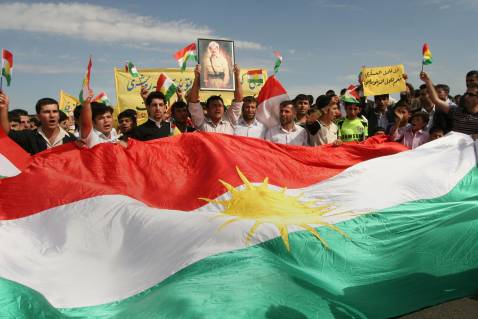The National Alliance (NA), a merger of major Shi’ite blocs, announced on Friday that it would designate Maliki for a second consecutive term. If the nomination proceeds as planned, this would prove a major breakthrough in a seven-month political impasse since a March 7 election failed to produce a clear winner.
Still, Maliki’s political endurance hangs on the support of the Kurdish faction. The Kurds, whose support would ultimately give Maliki the seats he needs for a governing majority, said they would push requirements that have often put them at odds with the central government in Baghdad, including the right to negotiate favorable oilfield contracts.

Iraqi Kurdish Youth at a protest in Erbil
The semi-autonomous Kurdish region has had touchy relations with the central Iraqi government, primarily over disputed land and oil. U.S. military officials are concerned that the disagreements could kindle the country’s next major conflict. Sectarian violence has been on the rise as Washington prepares to pull out all U.S. forces by the end 2011.
A dispute between the Kurds and Baghdad froze oil exports from the region last year. As of today, they remain suspended. The regional government signed contracts with foreign oil companies for the development of fields in its territory that Baghdad views as illegal.
Typical of any and all Iraqi governance, negotiations with the Kurds could prolong the government formation process for weeks or months, so let’s not get too excited about four more years of Maliki just yet.